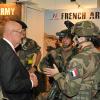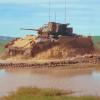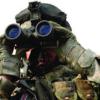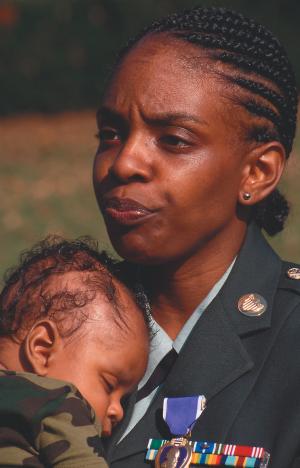When Sen. Roger Wicker, R-Miss., pressed the defense secretary on why not one question was asked in the survey sent to 400,000 service members and families on whether the "Don’t Ask, Don’t Tell" law should be repealed, Robert Gates answered, "I think that in effect doing a referendum of the armed forces on a policy matter is a very dangerous path."The exchange came after Gates had said, "I can’t think of a single precedent in American history of doing a referendum of the American armed forces on a policy issue. Are you going to ask them if they want 15-month tours? Are you going to ask them if...
The Army chief of staff told the Senate Armed Services Committee he would not recommend the immediate repeal of the 17-year-old law banning gays and lesbians from serving openly in the armed forces because it would increase stress on deployed combat units.Gen. George W. Casey Jr. said, "Implementation of the repeal of Don’t Ask, Don’t Tell would be a major cultural and policy change in the middle of a war," he said. "It would be implemented by a force and leaders that are already stretched by the cumulative effects of almost a decade of war."But he added in the future, "Properly implemented, I...
President Barack Obama presented the Medal of Honor Nov. 16 to the first active duty service member in nearly 40 years.Staff Sgt. Salvatore Giunta was described as a humble, low-key soldier –- one that shies away from the limelight.But his actions on Oct. 25, 2007, were anything but low-key when he refused to let enemy fighters carry off a fellow wounded soldier in Afghanistan.Giunta, then a specialist, individually pursued two insurgents who had captured a badly wounded Sgt. Joshua Brennan during a deadly firefight.Giunta killed one insurgent and injured the other, and immediately began to...
With the Stryker armored fighting vehicle having proven its track record under the most severe combat conditions since its introduction in 2002, General Dynamics Corp. – the company that designed and built it – is gearing up to broaden its capabilities.At the heart of General Dynamics Land Vehicle Systems Division’s plans for the Stryker are two different courses of action.The company is working to replace the Army’s remaining inventory of flat-hulled Strykers with double-V hulls, much more capable of protecting crews and soldiers from improvised explosive devices (IEDs).General Dynamics also...
Since the first unmanned robots debuted on the battlefield in Bosnia in 1999, the devices have more than proved their worth in a variety of missions.Troops in the field who once had to put themselves in harm’s way for explosive-ordnance disposal (EOD), resupply, or reconnaissance and surveillance tasks now almost exclusively rely upon the robotic devices.Acutely aware of the key role their products now play, the companies that design and manufacture these unmanned ground systems are focusing their efforts on enhancing their utilitarian traits.At the Association of the United States Army Annual...
The Defense Language Institute categorizes languages into four levels of difficulty.
The Army has long had a need to deliver precision indirect fires. Yet recent political debates have spotlighted that need to the point that “precision fires” are suddenly becoming part of the public lexicon—debated on the OpEd pages of local newspapers, summarized in television sound bites and discussed over the radio airways.
Ironically, one of the U.S. Army’s lesser known battlefield systems, the M7 Bradley Fire Support Team (BFIST) vehicle, has been setting new standards of precision target location and controlling precision indirect fires for the last few years. To summarize it for...
Since their invention in the first half of the 19th century, binoculars have played a critical role in many tactical military operations. It has only been in the last decade, however, that U.S. Army binoculars have been optimized to meet the unique needs of individual
warfighters.
“Before 2000, the Army considered binoculars to be a ‘one size fits all’ type of item,” explained Barbara Muldowney, deputy product manager for Individual Weapons within the program executive office—Soldier. “And that’s pretty hard to do. But after 2000, the Army decided that they needed mission-specific binoculars.”
Br...
Human intelligence (HUMINT)-gathering at the unit level in Iraq isn’t a 007-style enterprise. It’s plugging away, day after day, collecting bits and pieces of information—some big, some small—and trying to piece the local puzzle together; meanwhile, passing all the chunks up the chain so somebody else might fit them into the bigger picture. A quilt is made from scraps.
And it isn’t throwing a towel over your head and sneaking behind the lines. Heck, in Iraq, when the rear bumper of your vehicle passes the gate, you ARE behind the lines.
Tactical HUMINT teams (THTs) go deliberately about their...
We now return to the question of whether in the information-worshipping age of today, anti-intellectualism in our military has at last made its grudging exit.
My purposes in this two-part article are to trace the origins and manifestations of this anti-intellectual bias within the American military tradition.
“September 11 is one of those moments in history that toughens a generation,” 1st Lt. Jarat Ford remarked on the night that American air strikes began against the Taliban and al Qaeda terrorists in Afghanistan. It was his 25th birthday, and the Apache pilot and platoon leader in Company B, 1st Battalion, 1st Aviation Regiment (1-1 Aviation) was spending it at a former Soviet airbase in northern Poland and thinking about the war being waged 3,000 miles away. Approximately 80 U.S. Army Apache, Black Hawk and Chinook helicopters were parked in straight ranks on grass aprons that flanked...
“Of the day that all of this began—Tuesday, September 11—I have many memories,” SMA Jack L. Tilley told the soldiers, Army civilian employees and Army contractors who were seated in two rows inside Conmy Hall at Fort Myer, Va. “But few are as strong as what I saw in the hallways and on the grounds of the Pentagon in the minutes and hours following the attack.”
The soldiers and civilians were there to be honored for their actions done and wounds incurred when an airliner slammed into the west side of the Pentagon.
“Looking back on it,” SMA Tilley continued, “I saw exactly what I...
In his book Eisenhower’s Lieutenants, respected military historian Russell F. Weigley tells an interesting story about Gen. George C. Marshall, the World War II Army Chief of Staff and someone who wielded almost complete control over the promotion of general officers, and Col. James A. Van Fleet. Although Van Fleet had performed brilliantly in the European theater as commander of the 8th Infantry Regiment at Utah Beach and his senior field commanders had submitted his name to Marshall for promotion to brigadier general more than once, Marshall kept rejecting the recommendation. As the story...
Pagination
- First page
- Previous page
- …
- 198
- 199
- 200
- 201
- 202
- 203
- 204
- 205
- 206


















